
Until I read a lecture on Vitamin E, I only guessed that in general the American diet was lacking in this vital micro nutrient. Americans eat so much bread, pasta, pizza, and desserts, like cakes and cookies. We have a habit of eating cereal for breakfast, sandwiches for lunch, and pasta or pizza for dinner. Isn’t there Vitamin E in wheat? We learned that Vitamin E is contained in good quantity in wheat germ oil. Why not in wheat or wheat products? Unfortunately the wheat we eat is processed to remove the germ and the bran. Even organic whole wheat flour has no wheat germ. If it did it, it would be rancid within 24-72 hours without refrigeration. The fact is that to manufacture food for shelf life in the grocery store, the germ and the bran are removed from the wheat berry, leaving only the endosperm, which, by the way, contains the gluten. (Perhaps this contributes to gluten allergies.) The bran contains fiber, and the wheat germ contains 26 different vitamins and fatty acids. To obtain all the nutrients from the wheat berry, one must consume the entire berry, otherwise known as “whole wheat”. When the wheat berry is processed to removed the germ and the bran, 86% of the Vitamin E is lost, as well as a host of other nutrients. All we get from store bought wheat products are empty calories!So, can I venture to say that Americans are deficient in Vitamin E? We tend to be overfed yet undernourished. It seems difficult to obtain sufficient quantities of Vitamin E in an American diet unless actively pursuing it. Interestingly, Vitamin E deficiencies are linked to reproductive organ dysfunction, miscarriages, and deficient lactation. (This may be an exaggeration, but I rarely meet women who haven't miscarried.) Coupled with the fact that synthetic estrogen, and inorganic iron found in pre-natal vitamins destroy Vitamin E in the body, it seems even more difficult not to be Vitamin E deprived. For instance if the RDA for a woman over the age of 19 is 15 mg per day, and green beans, tomatoes, and eggs have less than 1mg each; it seems like a weighty task to consume the optimal levels on the typical western diet. Yet if we ground our own wheat berries and made fresh bread with the whole berry, including the germ and the bran, we would be getting sufficient amounts of Vitamin E as well as an array of other nutrients.It seems that because much of our food is processed, and refined to sit on grocery store shelves, we may be losing vital nutrients that we would normally consume if our food were fresher and in its most natural state. Even eating fresh produce may prevent proper nutrient absorption if the produce has been treated with insecticides, pesticides, and chemical fertilizers. Vitamin deficiencies are so common in the United States because of the overall poor quality of food being consumed, pharmaceutical drug ingestion which inhibits absorption of many nutrients, and even poor quality of soils. For instance, “you could buy spinach in 1948 that contained 158 milligrams of iron. Today, the iron content of raw spinach is 27 milligrams.” (Medford, 2006).The human body is resilient and adaptable. We are survivors. Look at Eskimos who hardly eat any vegetables at all. They survive on fish and even seaweed, (mainly unprocessed foods); surviving in their environment. Likewise, here in America we seem to be surviving. Yet, each day, the older we get, we accept aches, pains, and ailments as a part of life; instead of listening to our bodies. It’s amazing how we survive on burgers and fries! So many women in there 30’s and 40’s are exhausted, having trouble even getting out of bed, as if they were in their 70’s! I believe our bodies are begging for proper nutrition. Perhaps we should be looking more carefully at what we put in our mouths, questioning the nutritional value of our food. I’m the first to admit, it is quite the task to be nutrient savvy especially when there’s coffee and Krispy Kreme to be had! Our health is precious and so our diet has to be carefully chosen with optimal nutrition in mind.
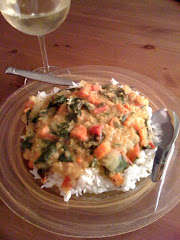
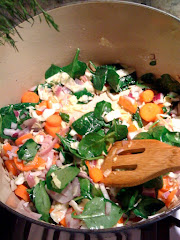
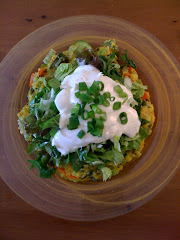
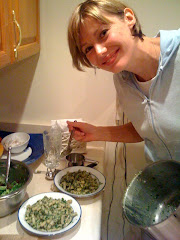




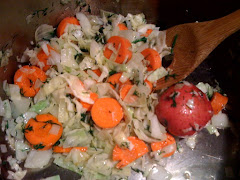
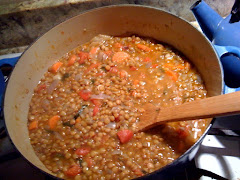




1 comment:
Thank you for posting. Very insightful.
Post a Comment